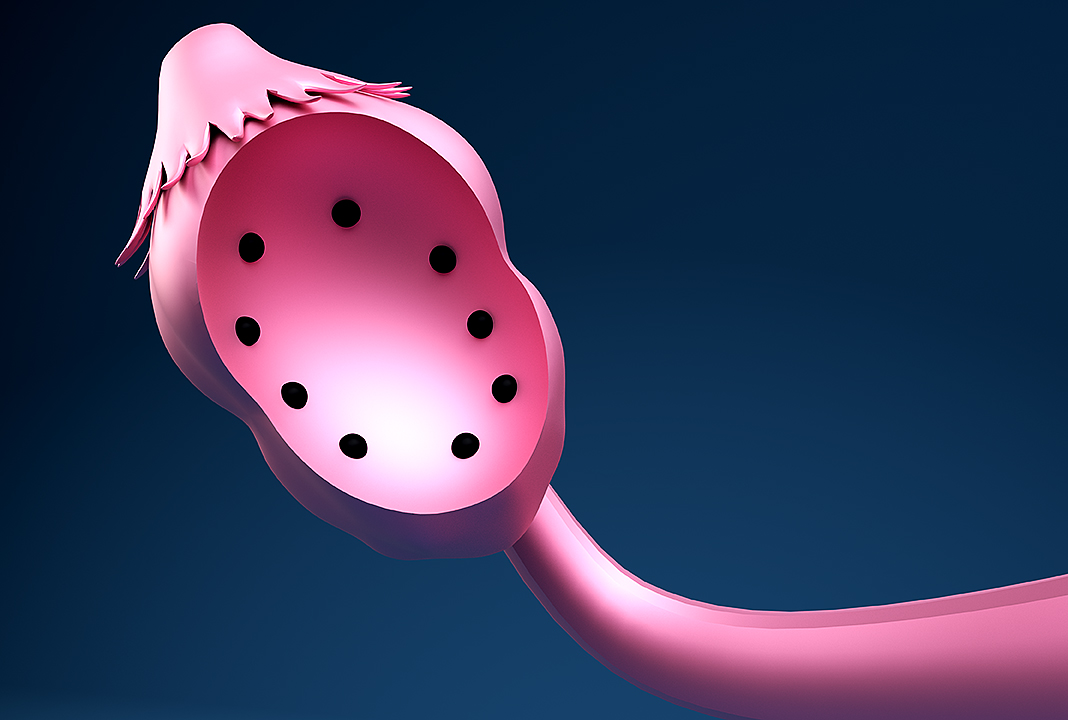Can You Get Pregnant with Endometriosis and PCOS?

It's estimated that approximately 5 million women live with polycystic ovary syndrome (PCOS), and more than 6.5 million women have endometriosis.
What's the connection? A 2015 study found that women diagnosed with PCOS were at a higher risk of also being diagnosed with endometriosis.
What causes PCOS and endometriosis?
The cause of PCOS, a hormonal disorder that impacts women, is not fully known. Experts believe that either high levels of androgens (hormones that control the development of male traits) or insulin resistance (insulin controls how the body processes glucose) is to blame.
Endometriosis is an inflammatory disorder in which endometrial tissue grows outside the uterus rather than inside. Both disorders can be painful, but for many women, the impact on fertility is the top concern.
Can you get pregnant with PCOS?
Although women with polycystic ovary syndrome are often able to get pregnant, this disorder can significantly impact fertility and pregnancy.
Many women with PCOS may struggle to become pregnant due to the higher presence of androgens in their system. PCOS also causes women to ovulate infrequently or not at all.
PCOS can also cause issues during pregnancy. According to the National Institute of Child Health and Human Development, PCOS can cause the following complications during pregnancy:
- Miscarriage: Women with PCOS are three times more likely to miscarry than those without this syndrome.
- Preeclampsia: Women with PCOS are at a greater risk of developing sudden high blood pressure after the 20th week of pregnancy, which can lead to severe organ damage, seizures and death.
- Gestational diabetes: Pregnant women with PCOS are more susceptible to this form of diabetes, which can lead to a C-section birth and puts them at a higher risk of developing type 2 diabetes later in life.
- Preterm delivery: Women with PCOS are more likely to deliver babies preterm (before 37 weeks), which can lead to serious complications for the newborns.
- Cesarian delivery: Women with PCOS are more likely to require a C-section delivery due to the risk of increases in blood pressure and larger babies.
Can you get pregnant with endometriosis?
People with endometriosis, sometimes called "endo," experience endometrial tissue growth on the outside of their uterus. For many women, this tissue also adheres to the ovaries and fallopian tubes.
This growth can impact the health of these reproductive organs, or even block or inflame these organs. Endometriosis can cause issues with getting or staying pregnant.
It's not impossible for women with endometriosis to become pregnant, but some might have a more difficult time conceiving because of this disorder.
When women with endometriosis become pregnant, many find their symptoms are less significant during and after pregnancy. Conversely, other women find their symptoms worsen, particularly as their uterus expands and pulls on the endometrial tissue.
Common pregnancy disorders for women with endometriosis include:
- Miscarriage: Women with endo have a higher chance of loss of pregnancy, even if they have only a mild form of the disorder.
- Placenta previa: This is a condition in which the placenta resides on or near the cervix, instead of attaching to the uterine wall. Placenta previa can be life-threatening and might require an emergency C-section and blood transfusion.
- Preterm delivery: Women with endometriosis are more likely to have babies born prematurely (before 37 weeks).
How do you know if you can get pregnant with endometriosis and PCOS?
PCOS and endometriosis aren't always a barrier to pregnancy, but if you're struggling to get pregnant or worried about the potential risk factors of pregnancy, it's important to talk to your doctor about your next steps.
Everyone's medical history is different. Talking to a professional about your fertility chances, pregnancy risks and how they relate to your endometriosis and PCOS, can offer you a clearer path on your fertility journey.


















